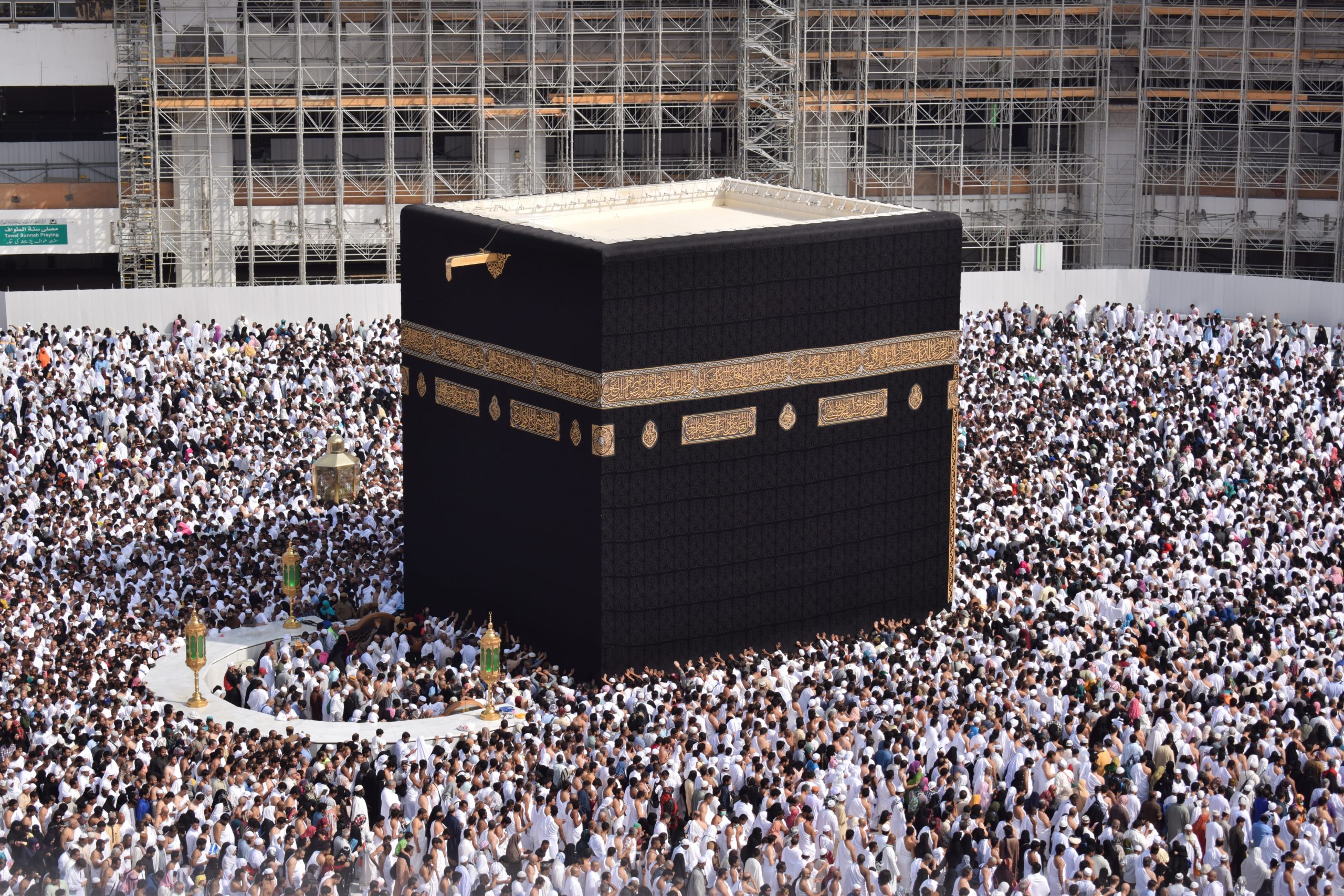Ramadan and Diet
As the start of Ramadan approaches, Registered Dietitian Carolina Frascina shares information about what Ramadan is, and how Dietitians can support their patients and colleagues during this holy month.
Ramadan and Diet
Allied Health Professional's Personal Reflections


My name is Sami Pir! I currently work as a Dietetic Assistant under the Dietitians within the St James University Hospital performing such tasks as follows:
The 9th & holiest month of the Islamic year, Ramadan is a time when Muslims from all over the world dedicate themselves to working on their spirituality. This year Ramadan will begin on the 23rd of March ending on 21st April. Therefore, the celebration of EID-UL-FITR will follow as a festival/celebration of completing the holy month of Ramadan.
As part of this month of spiritual rejuvenation, Muslims worldwide abstain from all food or drink, including water and chewing gum, from dawn to sunset.
It is recommended that before sunrise, Muslims eat a pre-fast meal known as suhur. This meal often resembles breakfast, but in some cultures, it may include more dinner-like foods.
After sundown, Muslims break their fast with iftar, a meal which usually starts with dates and water or milk, followed by dinner. Muslims are permitted to snack at night between those two meals, and hydration is encouraged, especially when Ramadan falls during summer.
In addition to this, Ramadan also allows individuals who keep fast in this blessed month to ponder over how the poor people feel without any food or drink, therefore, we think of them, pray upon them & give charity as act of kindness to the poor & needy in such poor countries around the world.
Muslims believe that in A.D. 610, the Angel Gabriel appeared to Prophet Muhammad (PBUH) and revealed to him the Quran, the Islamic holy book. That revelation, Laylat Al Qadar—or the “Night of Power”—is believed to have occurred during Ramadan.
At this time, the weather was particularly hot, this influenced the name of Ramadan when it was first revealed. Ramadan means ‘burning heat’ in an ode to the time of the year it was first revealed, and this time of year marries up with Laylat al-Qadr, which happened some 12 years prior.
I am always given that opportunity to take the first few weeks off as they are the hardest due to the feeling of hunger & thirst
In the month of Ramadan, working and fasting isn’t always easy, especially whilst working in my previous role as a clinical support worker on a ward was difficult. I was always on the go, answering patient queries, ensuring all tasks was completed to a high standard, making sure all standards of care were met to a high standard & taking a systematic/holistic approach towards patients.
Within the 2 years of working on a ward it was a testing time of feeling hungry, lethargic & difficult. Nevertheless, management was amazing to me throughout, they allowed me to take 5mins breather breaks or to have fresh air at times. Working 13 hours on a ward wasn’t helping in being able to become consistent with fasting as there was times, I felt very unwell therefore, resulted in having to break my fast or not keeping them at all. Annual leave at the time was difficult to obtain due to Ramadan falling in the summer months as well as many staff shortages especially throughout the Covid pandemic.
Towards the end of August 2020, I had applied for the Dietetic Assistant role which I was successful for. There were many reasons in why I had wanted to take on the role, not just the academic side of things or what the job role had involved but was due to the fact of being able to work on a better structured timetable of Monday-Friday 8am-4pm which suited me very well.
Looking towards the future of having such a structure to my life only had benefited me especially with the holy month of Ramadan. My line manager, who is very caring & attentive towards me especially when it comes to the month of Ramadan, she & the team are always supportive when it comes to having little breather away from my desk, fresh air outside or even working in a different office to the main office!
Throughout my employment within the Dietetics dept, annual leave is no issue as much as it was in my previous role as a CSW, therefore within Ramadan, I am always given that opportunity to take the first few weeks off as they are the hardest due to the feeling of hunger & thirst.
My faith in my religion continues to teach me to look after others well in ways I would be liked to be looked after, treating others with love, care & attention
All three aspects stated above have encouraged me a lot in being able to become a health-care professional for the NHS. Since 2018, dropping out of university within my second year as a student nurse at the age of 21 had led me to feeling very low as I really wanted to become a nurse as it was my life-time ambition, something I had passion for.
However, I didn’t let this ambition go, I had looked deeper into my faith & religion to guide me to become a better person as well as believe that I can still achieve something better. Hence going through all the trials & tribulations led me to becoming eager to just gain experience as an assistant first throughout all my job roles so far within LTHT to then to one day gain a degree within Dietetics.
My faith in my religion continues to teach me to look after others well in ways I would be liked to be looked after, treating others with love, care & attention! The job roles throughout my NHS career had included the Leeds Way Values: Patient Centred, Fair, Collaborative, Accountable & Empowered. These values itself was taught to the prophets who came before us to the world, especially Prophet Muhammed (PBUH); Muslims amongst others who believe & look upon such a role model would implement the core values within their daily life-style as well as within the workplace which I like to do each & every-day towards patients, staff & visitors.
In conclusion Ramadan is just the icing on the cake for me due to working in a hospital. It makes me realise how lucky I am to have a healthy lifestyle & be able to appreciate what I have in life better. This is what the month of Ramadan is for, to ponder & seek for knowledge, to experience better things in such ways that we become closer to God. This is exactly what has happened to me, hence why I feel working for the NHS is such a good place for me to implement my core values learnt from my faith & religion to then help patients become better in all aspects of their care.
About me
Name: Multazim Zia, Physiotherapist

As a Muslim male, I have not always understood the purpose of fasting entirely. As I transitioned through the academic years and had exams, it was always a struggle as to whether fasting was my main priority because potentially it impaired my performance in the exams? Was that true? Not really.
Whilst studying to be a Physiotherapist, not only did I have to complete exams and assignments, I had practical placements. It was daunting, not being able to have water, food, waking up in the early mornings and having to be on the go. This all coincided with the mountain of university revision and work set. Regardless, it prepared me for my work life. Currently, I work as a Private MSK Physiotherapist at my own clinic, where it is immensely physically demanding.
When reflecting on the additional challenges that I had endured on placements, they taught me something I never expected. The month of Ramadan is about remembering the less fortunate, those who do not have the resources we have.
It is a month where we as Muslim should attempt to change to become the best versions of ourselves and to make that change permanent. That is precisely what fasting on placements and as a Specialist Physiotherapist taught me.
As a Physiotherapist your role is to care, improve, and support your patients to the best of your abilities. Something I had realised was that without fasting, I would not have appreciated the strength, patience, and tolerance that patients had. How could I? I was in a fortunate position where I was not suffering like many of my clients, some of them unable to eat, move, breathe, or sleep properly and many of them alone without family assistance.
Fasting did not make me isolate my thoughts or prayers to the less fortunate in terms of poverty, however, it made me truly empathise with those that were in vulnerable positions physically too.
Fasting...made me truly empathise with those that were in vulnerable positions physically too
As a clinic owner, I continue to practice as a Physiotherapist aiding patients with Musculoskeletal problems and fast through the month of Ramadan.
Although, I no longer have the responsibility of assignments or exams, there continues to be the verbal, physical and mental interactions with clients as well as a huge quantity of paperwork.
This does drain energy, on certain days you become tired, sleepy, and demotivated; even so, the most crucial factor that is the fuel for my passion to overcome the fatigue is, the ability to empathise with clients and placing myself in their shoes, potentially understanding a fraction of what they are going through.
Ramadan is not solely fasting for the sake of fasting… It has a powerful underlying meaning behind it… Being a Physiotherapist itself is massively rewarding, yet, having the gift of changing my perceptions through fasting and learning empathy, has been a paramount lesson to help improve myself as a clinician.
Here are 3 practical tips that you can take from this:
Take a look at how what the role involves, the routes you can take to get into this careers and the variety of settings you can work in.
Find out more